Is Canada’s Largest Alternative Asset Manager Dodging Global Taxes?
A new report from the Centre for International Corporate Tax Accountability and Research (CICTAR) reveals how Brookfield, owner of London’s Canary Wharf and New York’s Manhattan West, pays consistently low rates of tax and exploits global tax havens and loopholes.
Through complex corporate structures, with an exceptional reliance on Bermuda, Brookfield manages over $800 billion in global assets. Related party debt payments and other artificial transactions may substantially reduce taxable income where profits are earned. Brookfield’s aggressive tax avoidance schemes appear to deprive governments and communities of much-needed revenue for essential public services, including health and education.
This contrasts with Brookfield’s claim that sustainability is “fundamental to our business and how we create value”. Brookfield’s tax practices and its impact on local communities are anything but sustainable. The global giant provides the bare minimum reporting on tax and its shareholders and fund investors are left in the dark.
The report’s case studies – from the United Kingdom, Australia, Colombia, and Brazil – highlight potential risks for investors, providing a strong case for shareholders to support greater tax transparency through adherence to the Global Reporting initiative (GRI) tax standard as required in the shareholder resolution.
Jason Ward, CICTAR’s principal analyst, comments on the report release:
“Brookfield’s claims of being a responsible investor and advancing a sustainable economy are in serious doubt. Extracting profits from privatised public infrastructure and aggressively denying governments of funding for health and education is by no means sustainable. If Brookfield’s global profits are artificially inflated by exploiting loopholes, investors are placing a risky bet. By voting for Brookfield to implement the GRI tax standard, investors can shed light on global operations and potential risks. If the company is operating sustainably and responsibly, then Brookfield’s executives and management should have nothing to fear from greater transparency. Australia’s forthcoming legislation is expected to require Brookfield and other multinationals to publicly report on a country-by-country basis, beginning in July.”
Brookfield is one of the world’s largest investment managers, specialising in direct ownership of assets and operating companies around the world, across a range of diverse sectors, industries, and asset classes, including private equity and real estate. Much of Brookfield’s capital is workers’ deferred income invested by global public pension funds. Brookfield’s investments and practices have direct impacts on hundreds of millions of people around the world.
Canary Wharf, UK
In 2022, the UK was Brookfield’s largest global market where it generated $25 billion in revenue. There is no publicly reported information on Brookfield’s total UK profits or taxes paid. However, if its ownership of London’s landmark Canary Wharf complex, along with the Qatar Investment Authority, is any indication, it is likely that very little tax was paid. Canary Wharf is owned via holding companies in Jersey and Bermuda and hundreds of subsidiaries, including 35 in Scotland and 27 in Jersey. In 2021, Canary Wharf, worth a whopping £8,087 million, had annual operating revenue of £419.7 million, but pre-tax profits were reduced to a mere £51.9 million and taxes paid were only £11.5 million.
ISAGEN, Colombia
Brookfield’s ownership of the privatised hydropower company, ISAGEN, in Columbia is part of its “renewables” holdings. In 2022, Columbia’s President Gustavo Petro invoked emergency powers to bring down soaring consumer prices for hydropower electricity as ISAGEN’s profits doubled. Meanwhile, related party loan repayments appear to have transferred $2.6 billion out of Colombia and may have reduced tax payments in Columbia by $850 million. Despite gouging consumers and extracting huge sums from former publicly owned assets, Brookfield appears to have reinvested very little in expanding hydropower production in Colombia.
BRK Ambiental, Brazil
Brookfield has been a long-term and controversial investor in Brazil. Brookfield, through its private equity structures in Bermuda, is the majority owner of BRK Ambiental, the largest private water and sewage company in Brazil. Brookfield positioned this company to massively benefit from privatisation efforts under former Brazilian President Jair Bolsonaro. Brookfield’s 35-year concession to provide water and sewage services to the north-eastern city of Maceió is now under inquiry by the local government following numerous complaints and there are reports that potential witnesses have been intimidated. Brookfield’s profit extraction approach does not appear to benefit the millions of Brazilians with no current access to basic sanitation services.
In response to the allegations made in this report, a Brookfield spokesperson said:
“We are committed to providing relevant and proportionate disclosure about our tax payments in accordance with recognized reporting frameworks and in a manner that is both informative and transparent.
“Our investments consist of businesses that own and operate critical infrastructure, renewable energy and real estate assets all over the world. These assets are owned by corporate subsidiaries in their local jurisdictions where all applicable corporate income taxes are paid in compliance with local tax laws. We also file a country-by-country tax report with the Canada Revenue Agency which shares that information with the OECD jurisdictions in which we operate.
“Our effective tax rate is influenced by several factors, some of which are not reflective of cash taxes paid, therefore can be significantly misleading. For example, in line with IFRS accounting standards, we report our income to include non-controlling ownership interests, whereas our reported tax provision includes only our proportionate share and not the share attributable to our investment partners. We would also note that jurisdictions around the world have substantially different corporate tax rates and offer important tax incentives for investment, for example in sectors such as renewable energy in which Brookfield is a recognized global leader.”
Sign up for our newsletter
By clicking ‘Sign Up’ you are consenting to be contacted by CICTAR about our work. We will not share your information outside the organisation. You can unsubscribe at any time by emailing us.



